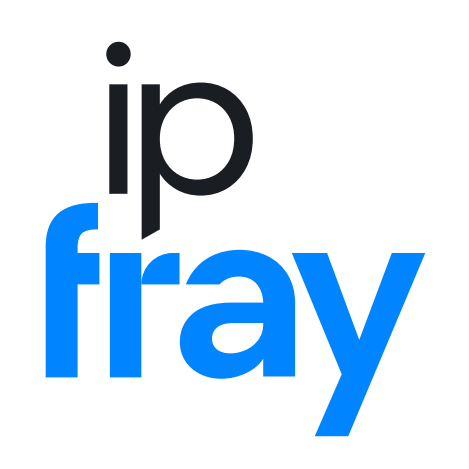Context: Earlier today, the previous ip fray article discussed politically movitated exaggerations of alleged issues surrounding standard-essential patents (SEPs), also including SEP pools, though optional joint licensing programs can hardly “exacerbate” (as one implementer claimed at a recent conference) anything.
What’s new: The global leader in the smart meter market, EDMI, today demonstrated the optionality of patent pools. Huawei and EDMI announced a “a cellular IoT Standard Essential Patents (SEPs) license, including NB-IoT, LTE-M and LTE Cat. 1” (April 11, 2024 Huawei press release). EDMI could have licensed Huawei’s patents, with respect to those narrowband standards, from Sisvel, but opted for the bilateral solution. EDMI does, however, have a cellular IoT pool license, just that it’s from Avanci (October 30, 2023 Avanci press release). Avanci’s Smart Meter pool has 42 licensors; Sisvel’s narrowband IoT pool has roughly half as many, among them Huawei. The pools are not identical in focus, but in this case it appears that EDMI identified its individual sweet spot by taking Avanci’s license and a bilateral one from Huawei, while declining to take a Sisvel narrowband IoT license.
Direct impact: The announcement validates Huawei’s transparent and highly differentiated IoT licensing terms (for another example of published and differentiated rates, see Qualcomm’s rates (March 25, 2024 ip fray article), though end-product makers usually don’t need a Qualcomm license as their modules tend to be licensed). The fact that EDMI took an Avanci Smart Meter license, but not a narrowband IoT license from Sisvel, represents a single company’s decision at this stage, and some of the standards covered by Sisvel’s narrowband IoT pool are explicitly excluded from the scope of the Avanci Smart Meter license. What is certain, however, is that EDMI had choice.
Wider ramifications: There is no evidence at this stage of SEP licensing issues endangering the viability of the IoT sector. Much to the contrary, agreements are reached, and those advocating legislative intervention can’t point to a SEP litigation crisis surrounding IoT. EDMI’s decisions validate Huawei’s terms, the Avanci Smart Meter program, and the optionality of pools with respect to Sisvel’s narrowband IoT pool. In other words, while Sisvel didn’t get this deal, everyone can see that there is no antitrust issue along the lines of tying or exclusive dealing: Sisvel’s agreement can hardly be anticompetitive as long as Huawei, its largest licensor, enters into bilateral agreements such as this one.
Patent pools obviously strive for maximum market penetration. They design their offerings so as to split the gains of trade (which are all about transactional efficiencies, including a reduced need for litigation) between licensors, licensees and the pool administrator. If a pool gets bypassed too often, then there must be a problem (structural or pricing-related). A single company’s decision, albeit the global market leader, is obviously not a statistic.
In cellular IoT, it’s hard to find out about license deals that have actually been signed and announced. So far, EDMI’s deals with Avanci Smart Meter and Huawei stand out. By contrast, Sisvel has yet to name of a first narrowband IoT licensee (which means there either is no licensee yet or none has authorized making the deal public). That’s why Sisvel would have benefited greatly from announcing a deal with EDMI. Sisvel generally doesn’t announce licensees the way Avanci does, and even Avanci sometimes has to live with certain implementers’ desire to keep their licenses confidential (for instance, Tesla’s Avanci 4G license became known only through litigation brought by Tesla itself).
In the current, heavily politicized environment (with SEP policy initiatives in various jurisdictions, including but not limited to the EU), short-term business interests are sometimes eclipsed by long-term strategic priorities.
Sisvel has more pools than cellular IoT. It’s the only major European company in the pool administration business, which makes it all the more astounding that EU policy makers and lawmakers reportedly declined to engage with Sisvel in the context of the proposed EU SEP Regulation.
Sisvel can presumably also live with the fact that Avanci can list EDMI as a licensee while Sisvel cannot. Sisvel has recognized the fact that Avanci is way ahead in some fields by contributing its own cellular SEPs (the ones assigned to Sisvel) to Avanci’s automotive pool, which was probably the first case of one pool administrator joining a pool managed by someone else.
Given that Sisvel is here to stay in the patent pool business, it should view EDMI’s decision to choose a bilateral license from Huawei over a pool license from Sisvel as a good thing. If anyone ever wanted to allege that Sisvel’s cellular IoT pool anticompetitively restricts choice for licensees, that deal alone would be enough to conclusively disprove that allegation (just like certain license deals into which some Avanci licensors entered at different levels of the automotive supply chain also proved the optionality of Avanci’s automotive pool).
It is also in Sisvel’s interest that policy makers in different jurisdictions see that pools are not part of the problem as long as they are optional. Maybe EDMI didn’t like Sisvel’s rates. Maybe EDMI didn’t like other Sisvel terms, such as some field-of-use restrictions. Whatever the reason(s) may have been, the key thing is that EDMI had choice because Huawei was at unfettered liberty to extend this direct license. Even if someone with a SEP devaluation or anti-pool agenda wanted to hold EDMI’s decision against the market acceptance of Sisvel’s narrowband IoT pool, it wouldn’t matter in political terms: that pool is an offer, an option, and maybe the next licensee will prefer the pool license over a bundle of bilateral ones. Or maybe not, in which case Sisvel may adjust its terms again (it already did so when Huawei joined). That’s the nature of choice, the essence of optionality.
